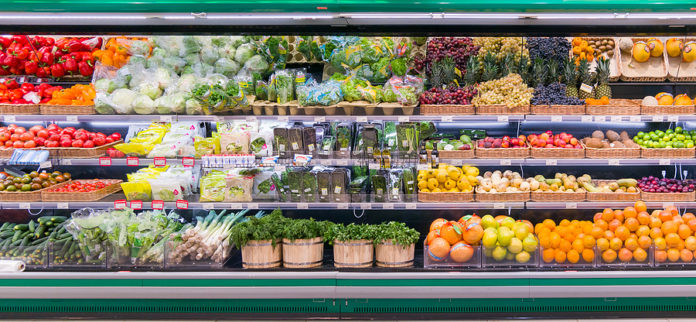
Year-over-year sales growth for organic produce surpassed that of conventional produce in 2020, according to Organic Produce Network’s State of Organic Produce 2020 report.
With the exception of May 2020, organic sales growth was consistently higher than conventional produce sales growth in 2020, gaining an even greater lead during the second half of the year. Overall, 2020 organic produce sales were up 14.2%, or $8.5 billion, while conventional sales growth was at 10.7%. Volume gain was 16% for organic and only 9% for conventional.
The top-selling organic produce
The rise of at-home cooking was a win for organic sales growth, but these categories stood above the rest:
- Packaged salads (15.4%, $1.47 billion)
- Berries (12.2%, $1.31 billion)
- Apples (11.1%, $620 million)
- Herbs and spices (26.7%, $430 million)
- Carrots (10.7%, $426 million)
- Bananas (11.4%, $369 million)
- Lettuce (16.3%, $369 million)
- Tomatoes (16.4%, $313 million)
- Potatoes (22.0%, $273 million)
- Mushrooms (28.4%, $228 million)
Organic packaged salads were a top driver in both sales and volume gains for the year, generating nearly $1.5 billion in sales and $208 million in volume. This growth is thanks, in part, to the product’s high price premium (about 80% compared to conventional).
As the second category on the list, berries had a sales boost of 12.2% and a volume increase of 20%. Price premiums varied depending on the type of berry, with organic strawberries leading the way at 68% compared to conventional. And, with a price premium of 38%, organic apples went up by 11.1% in sales and 14.1% in volume.
Herbs and spices, potatoes, and mushrooms had the highest year-over-year increases, however — 26.7%, 22%, and 28.4%, respectively. And although total sales put bananas further down the sales list, it was the leading category for volume gains at $525 million.
Support for the organic industry
Many food industry companies stepped up to help during the pandemic, and the produce industry was no exception. Sunkist Growers, Bolthouse Farms, and Organically Grown Company are among those listed in Organic Produce Network’s report for donating produce to food programs and communities in need.
The report also highlights organizations that helped strengthen and support organic farming over the past year:
- Financial aid: Through its Bricmont Hardship Assistance Fund, the CCOF Foundation granted $40,000 in financial assistance to organic businesses impacted by COVID-19 challenges.
- Regulatory: The USDA strengthened its National Organic Program (NOP) to protect organic supply chains and published the Strengthening Organic Enforcement Proposed Rule.
- Research: To help farmers better manage soil fertility, the Organic Farming Research Foundation funded a project to determine how much nitrogen is available to crops. And Rodale Institute’s Vegetable Systems Trial (VST), launched in 2016 to research nutrition differences between organic and conventional produce, is continuing its work with a potato trial in partnership with Dickinson College.
For a deeper dive into the data, download the full report.







